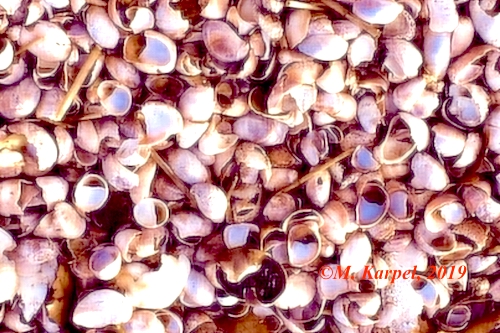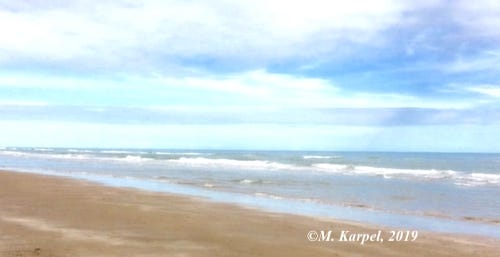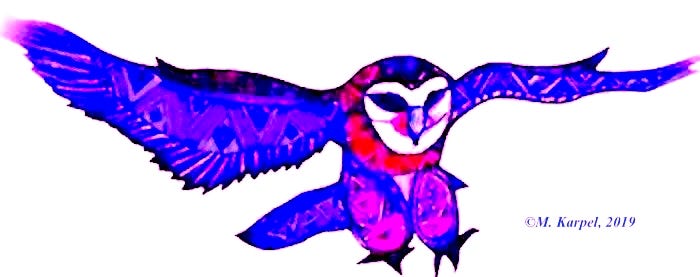
It’s that time of year when the prospect of attending high school reunions looms large on the horizon. There’s often a mix of emotions for those of us who are many years past high school — curiosity, excitement about seeing old friends, anxiety about uncovering old wounds, and uncertainty about clarifying the blurry memories of a time that, perhaps, would be better off left with the flattering light of a dim recollection while looking through a yearbook.
Many of us also experience intense painful feelings around events that occurred in high school — bullying, being on the perimeter of social groups, and the drama of relationships with those who were still just learning to relate to the world. For me, high school was actually a welcomed relief from the drama existing prior to high school. So now, considering a trip back “home” for my fortieth reunion has stirred up some pre-high school dynamics with one of the players acting out an old role. This led me to reflect on this rather universal predicament.
I grew up in a small town. Actually, I’m from New York City. But there’s narrow peninsula made of sand that juts out into the Atlantic Ocean. It’s technically part of the borough of Queens, but, for those of us who lived in Rockaway Beach, we know it as a small town on a tiny sandbar, off of the mainland. The summers on the sandbar had a fairy-tale quality at times. Cool breezes blew on most hot summer days. At night, I was lulled to sleep by the sound of the ocean waves lapping the shore right outside my bedroom window. I remember long days spent submerged in the apartment complex pool until my skin became prune-like from hours in the chlorinated water. Evening walks on the shoreline were another highlight of the day, when the beachgoers were returning to their respective homes in the interior of the city.
Frequently, high school summer nights were spent hanging out at an abandoned bus shelter by the beach. It was the place where everyone knew to meet. We called it “the wave” because it looked like a big blue ocean wave. On particularly hot nights, beachgoers from the Bronx prolonged their stay for as long as possible before taking the long train-ride back to their sweltering hot part of the city. Sometimes they remained until dawn, sitting on their coolers of beer by the picnic benches, jamming together on bongos with soulful rhythms playing through the night. That was the sound of summer nights in Rockaway.

The winters, on the other hand, were brutal and unforgiving. Wind whipped from the ocean, across the peninsula, and ended at Jamaica Bay, forming an icy tunnel between the apartment buildings in our complex. The dampness in the ocean air caused the cold to penetrate through layers of clothing, skin, and muscle, right to the bone. Fingers were numb and stiff inside the wool gloves and mittens. And the fog often rolled in and hovered just above us, blocking our view of the sun, creating dark, bleak, days for weeks at a time.
The twelve-story, city-block-long apartment buildings where I lived contained numerous kids my age, give or take a couple of years. We would meet in the playground in the complex after school to play games in the biting cold air for hours. When we hit our early teens, we would have dance contests to the music on our boom boxes.
While this might all sound like an idyllic childhood, one that Hallmark movies are made of, it fell quite a bit short of such charm during pre-adolescent years. The lines of the alliances, cliques, and “in” and “out” groups became clearly defined at about the time that I hit ten. It was frequently made clear to those of us not in the “in” group (of which I was not) where we stood — not in the group.
Very few of us on the outside cared to make any attempt to be “in.” Being “in” seemed to be a degrading proposition for the girls, with it’s focus on maintaining one’s status, determined by how much attention she could get from the boys in front of the girls. However, I realize now that no one, especially at that early stage of development, feels good about being told that they’re not “chosen.” As I’ve seen with many of my clients, this sort of dynamic has often led to continued interpersonal and internal obstacles affecting them into adulthood. Thankfully, I was lucky to have a buffer from the angst that not being chosen caused.
Every summer, while growing up, my parents took my brothers and me to a family lodge in the White Mountains. Aside from the wonderful experiences of climbing mountains with my dad, swimming in a lake with water that felt like velvet to the skin, witnessing the aurora borealis, and hiking through the aromatic piney woods every day, I made friends whom I would see again and again each summer. With this group of friends, there were no “in” or “out” groups or, really, any sort of drama. They were my “parallel universe friends,” completely untarnished from any of the sandbar drama, interesting non-conformists whose friendships helped me to feel comfortable in my own skin during those years, building confidence in my own identity.
Once I entered high school, I experienced a reprieve from the “in-group/out group” drama issue. I loved high school. Students from various backgrounds travelled from all parts of the city to attend our high school, which, for me, was my neighborhood school. I found my comfort zone immediately playing in the concert band. That’s when I discovered that musicians were extremely cool, and I didn’t need to be anyone other than myself to be accepted by that group. Band was my happy place.

After graduation, I left for college and then moved further away for graduate school. During that time, my parents moved to Brooklyn, and I loved spending my school vacations there. The energy of Brooklyn was vibrant, the various ethnic foods were (and are) incomparable, and it was an easy hop on the elevated train into Manhattan. I could walk down one block and hear at least three different languages as parents spoke to their children playing on the sidewalk. There was a mosque directly across the street from a synagogue, and it was the real world, where everyone got along and patronized each other’s businesses. On Brighton Beach Boulevard, there were Vietnamese fruit stands, Russian restaurants, kosher delis, Italian bakeries, pizzerias, bagel shops, fresh fish markets, fresh baked knishes, and, a block away, was the boardwalk, Coney Island Amusement Park, and the long, wide, beaches of Brooklyn.
Most of all, I enjoyed the anonymity of Brooklyn and that there was no pressure to be anyone different than who I was. I look back on those school vacations, getting to know my way around Brooklyn, with much more vivid memories that are completely filled with joyfulness and the feeling that this was my true “home-town.”
My life has changed quite a bit since graduating from high school in 1979 and moving away, as our lives are supposed to after high school. Those pre-adolescent interpersonal stresses faded from my memory, with the feeling/knowing that they occurred many chapters ago, and in a galaxy far-far away. In spite of, or, perhaps, because of these experiences, I’ve taken risks to follow my own dreams and my passion, leading me to what I’m doing now — helping those in emotional pain in my work as a psychologist, as well as through my writing and on my radio show. I inspire listeners of my radio show and readers of my writing to follow their own passionate dreams. And, I get to live in the live music capital, Austin, Texas, happily surrounded by musicians.
But, as is often the case, when we think we’ve buried the pain of a far-off memory from long ago, something will catch us off-guard to unearth it, causing us to relive it, maybe to heal it. That unearthing happened to me, bringing back the twinge of a forgotten sting, sharpening some of those blurred memories.

Here’s how it unfolded: In an attempt to gain information about my upcoming fortieth high school reunion, I discovered that I had been blocked from the Facebook group page. This blocking came from one of the administrators of the group page, someone with whom I had a disagreement approximately three years ago, when we had reconnected after almost forty years. He had been one of the boys in my building, a primary player of the “in/out” dynamics of our pre-teen years. It was almost comical to witness an adult playing that old dynamic, presiding over a Facebook group page that was meant to be open to all who attended our high school. He held the power in making decisions of who had the privilege of being “in” and who didn’t, all based on his own personal feelings. I had trouble laughing at the comedy of it, though, because I became aware that an old pain point had been triggered. What was most disconcerting was that it actually bothered me, especially at this stage of my life.
After a few hours of feeling disoriented about what decade I was in and where I was, I began to regain focus on the gratitude for all that I have in my life and my perspective of the insignificance of what had just happened. I’m also working to develop a feeling of compassion for this person, understanding that, “When we know better, we do better,” as Oprah has said. I’ve accepted that not everyone has full awareness of their own habitual dynamics or the impact of their actions. Realizing that, in this particular case, making decisions about who can be “in” and who is “out” of the Facebook group, just might be coming directly from his own pain points.
A schoolmate told me that she became friends with her childhood bully in adulthood, after he had admitted to her that he had bullied her way back when because his mom had been very sick. He was angry at the world and just didn’t know how to deal with it at that time. It was a great reminder that people who hurt others are often in pain themselves. While it doesn’t give permission for them to treat us badly, it does help us to have such an understanding so that we don’t take their behavior personally.
As I began to write my way out of my distress over this situation, with the intention of sharing my lessons with my readers who might be dealing with a related obstacle, I realized having gratitude for what we have in our lives, having a dream and passionately following it, along with contributing to the well-being of others, are the most powerful ways of remaining, or regaining, our resilience to outside stress and inner pain points, no matter their original source. Remember that we all need to follow our dreams, no matter if anyone has said that we’re “in” or “out,” “cool” or “uncool,” that we “can’t” do it, or that it’s “too late,” because the unique gifts that we all have to offer are important and magical. And, in fact, the world needs all of our magic right about now!
Certainly, the obstacle of managing issues of acceptance when considering a return to one’s hometown for a high school reunion is a very common theme. And the intensity of pre-teen and teenage dynamics can be more pronounced and traumatizing, with much deeper scars for some than anything I’ve described here, even causing thoughts of self-harm. If this is you, please know that suicide is not the answer and there is help! If you’re having thoughts of suicide, please speak to a mental health professional, call the National Suicide Prevention Lifeline at any time, 24/7, 1–800–273-TALK (8255), go to your nearest hospital emergency room, or call 911. There are many of us out here who have your back!
In Peace & Joy,
Dr. Mara

Read similar blogs by Dr. Mara and listen to her internet radio show. Also, be sure to follow her on Facebook for updates on her show and new blogs.
Check out Dr. Mara’s internationally best-selling book, The Passionate Life: Creating Vitality & Joy at Any Age!
Living the Passionate Life- Online Course will be launching in 2019!

